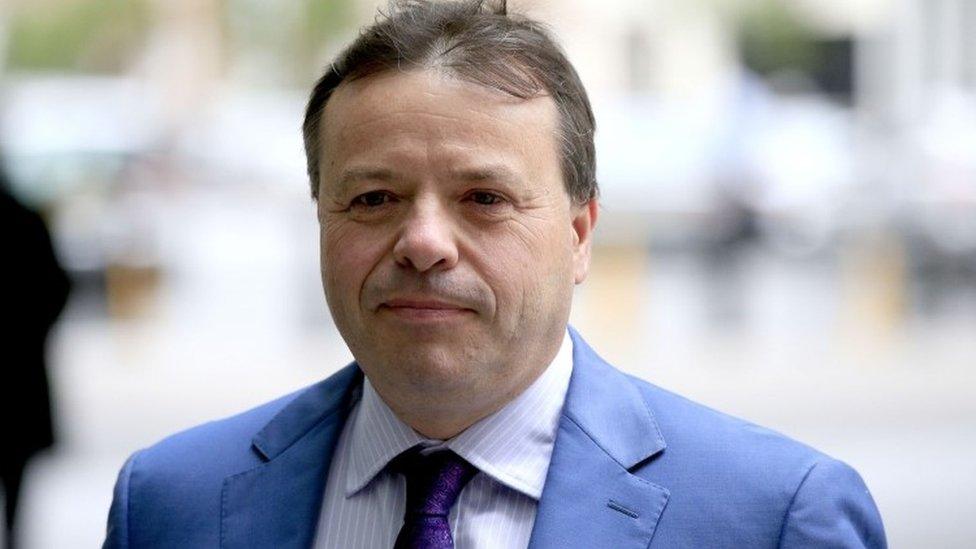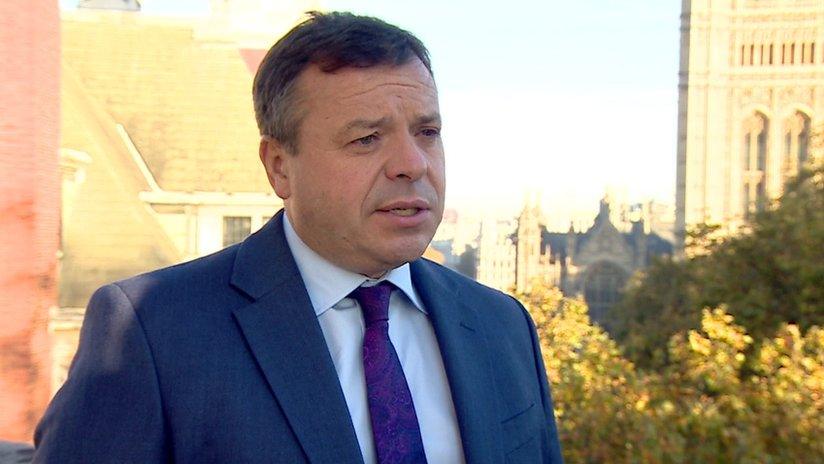Drain 'swamp' of bad MPs, urges UKIP's biggest backer
- Published

UKIP's biggest backer has suggested putting up independent candidates against "bad" MPs in an effort to "drain the swamp" of UK politics.
Arron Banks also said the House of Commons could be cut to 300 members and the House of Lords be replaced by a 100-member "senate".
He told BBC Radio 4's Westminster Hour politics needed a "one-off resetting".
But former Conservative cabinet minister Stephen Crabb dismissed Mr Banks's ideas as "wishful thinking".
The businessman, who has put millions of pounds into UKIP and the referendum campaign to leave the European Union, said it was time to put an end to career politicians.
'Open primary'
He told Westminster Hour: "One of the ideas we've kicked around with is draining the swamp. You would stick up independent candidates that were there for one term only to change the system.
"That might mean reducing Parliament to 300 people, abolishing the House of Lords, putting a 100-person senate in its place - a political change that is a one-off resetting of the equation."
Mr Banks proposed that potential independent candidates should face an "open primary" and that those who succeeded should receive "crowd-funding".
He said: "It would basically be independent people. They might be army officers. They might be doctors. They might be dentists. They might be business people. They might be anybody.
"But the definition would be that they're going to Parliament for one specific job and that's basically drain the swamp, get rid of the bad MPs and overturn the applecart."
Appearing on the same programme, Mr Crabb, former Work and Pensions Secretary, said: "People want to see their candidates turn up on their doorsteps. They want to see them put leaflets through doors, hold public meetings. You need established party structures to do that.
"Politics is changing - of course it is - with technology and everything else, but I wouldn't hold your breath that the end of political parties is anywhere near, and they are going to be replaced by Arron Banks and his movement."
- Published2 November 2016
